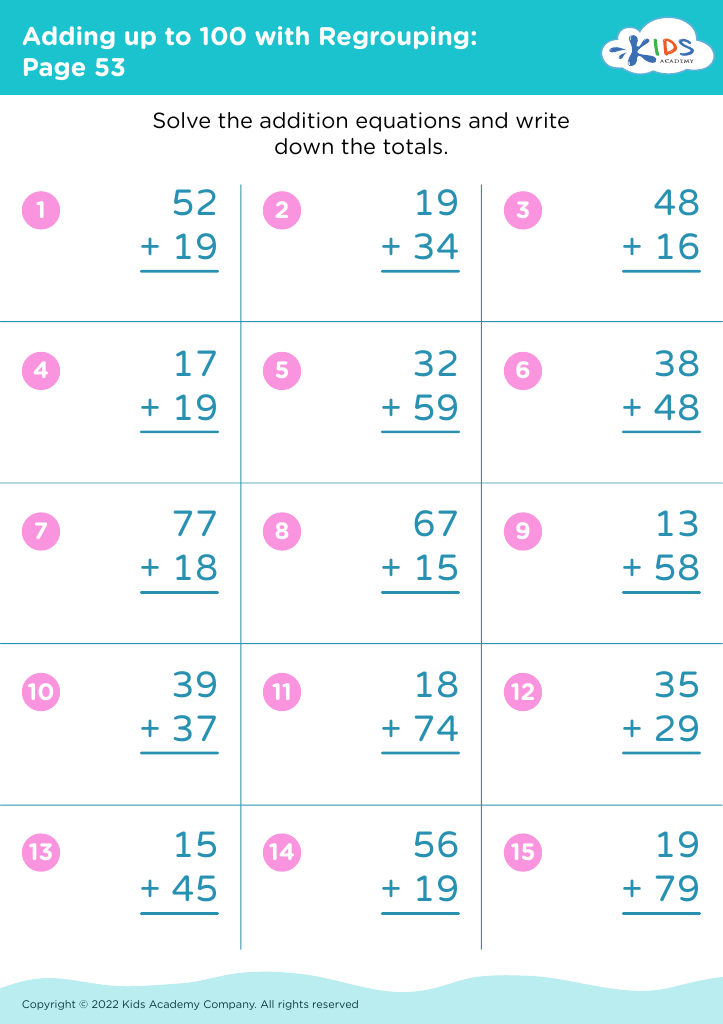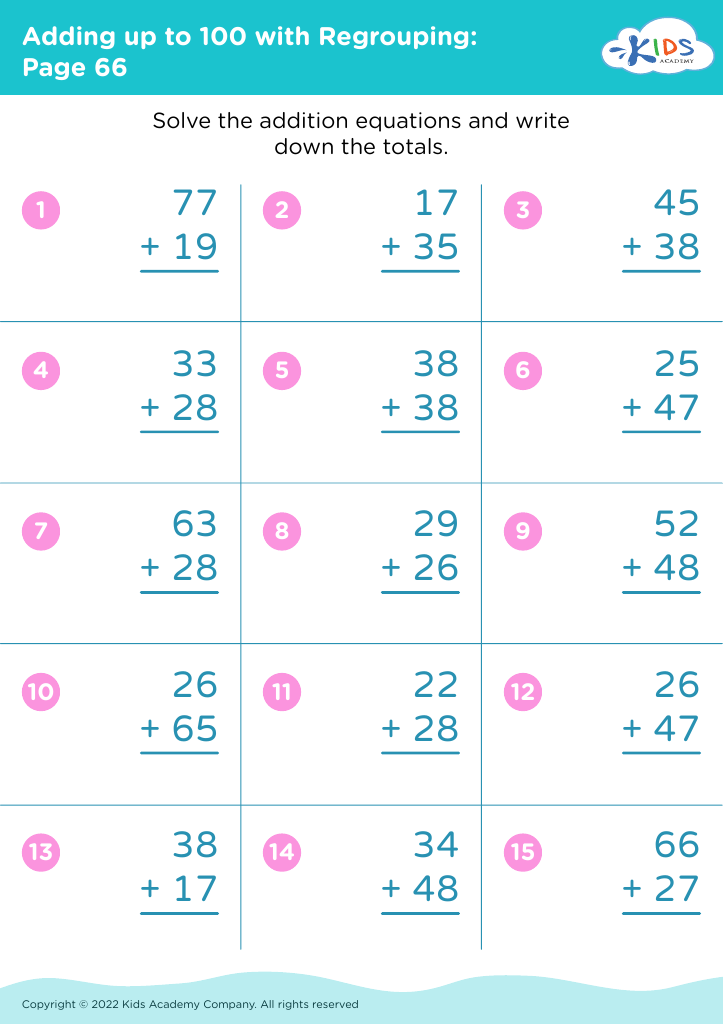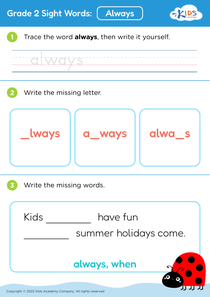Enhance critical thinking Grade 2 Addition Worksheets
4 filtered results
-
From - To
Discover our engaging Grade 2 Addition Worksheets designed to enhance critical thinking skills in young learners. These interactive worksheets challenge students to think creatively and analytically as they work through various addition problems. Each worksheet promotes not only mathematical proficiency but also problem-solving abilities, encouraging students to approach each task with curiosity and confidence. Tailored for second graders, our resources foster a deeper understanding of addition concepts through puzzles, word problems, and real-life scenarios. Equip your child with essential skills necessary for mathematical success and a love for problem-solving. Explore our collection and watch your child's critical thinking flourish!
Enhancing critical thinking skills in Grade 2 addition is crucial for a child's overall development and academic success. At this age, children are becoming more adept at basic mathematical operations, yet fostering critical thinking enables them to go beyond rote memorization of facts and procedures. When parents and teachers encourage critical thinking, they help children understand the "why" behind addition, rather than just focusing on the “how.”
This understanding builds a strong foundation for problem-solving, reasoning, and analytical skills, vital not only in mathematics but across all subjects. When children critically engage with addition by exploring different approaches, they learn to evaluate their methods and make informed decisions. This encourages a growth mindset where mistakes are viewed as valuable learning opportunities.
Moreover, critical thinking promotes resilience and perseverance when tackling challenges. As these young learners practice addition in varied contexts, such as word problems or hands-on activities, they develop better cognitive flexibility and creativity. Engaging in discussions about strategies and solutions further nurtures collaboration and communication skills. Ultimately, empowering students with critical thinking promotes a love for learning and lays the groundwork for complex mathematical concepts in the future, preparing them to navigate an increasingly complex world. Parents and teachers play a vital role in this crucial skill development.

























